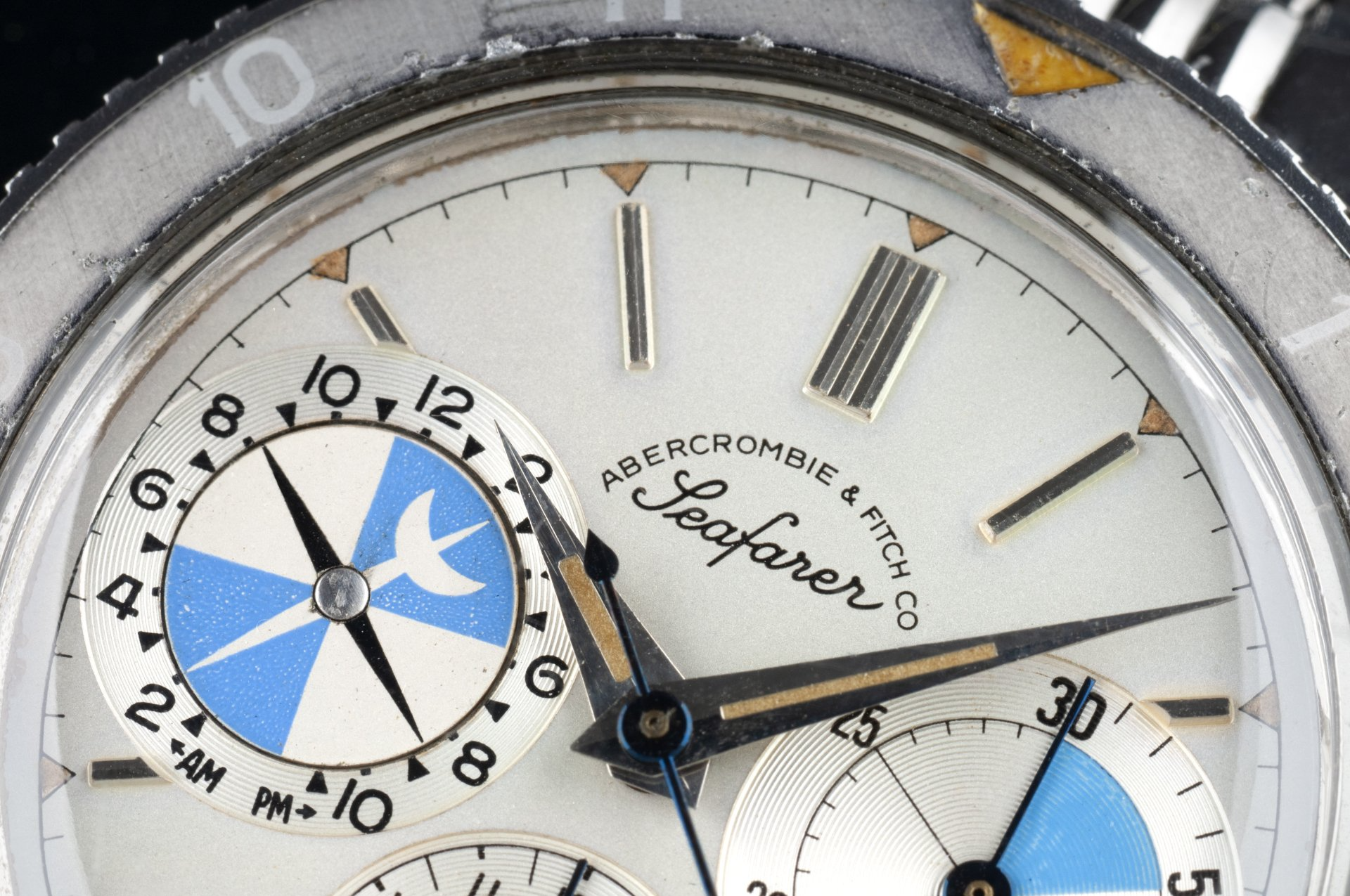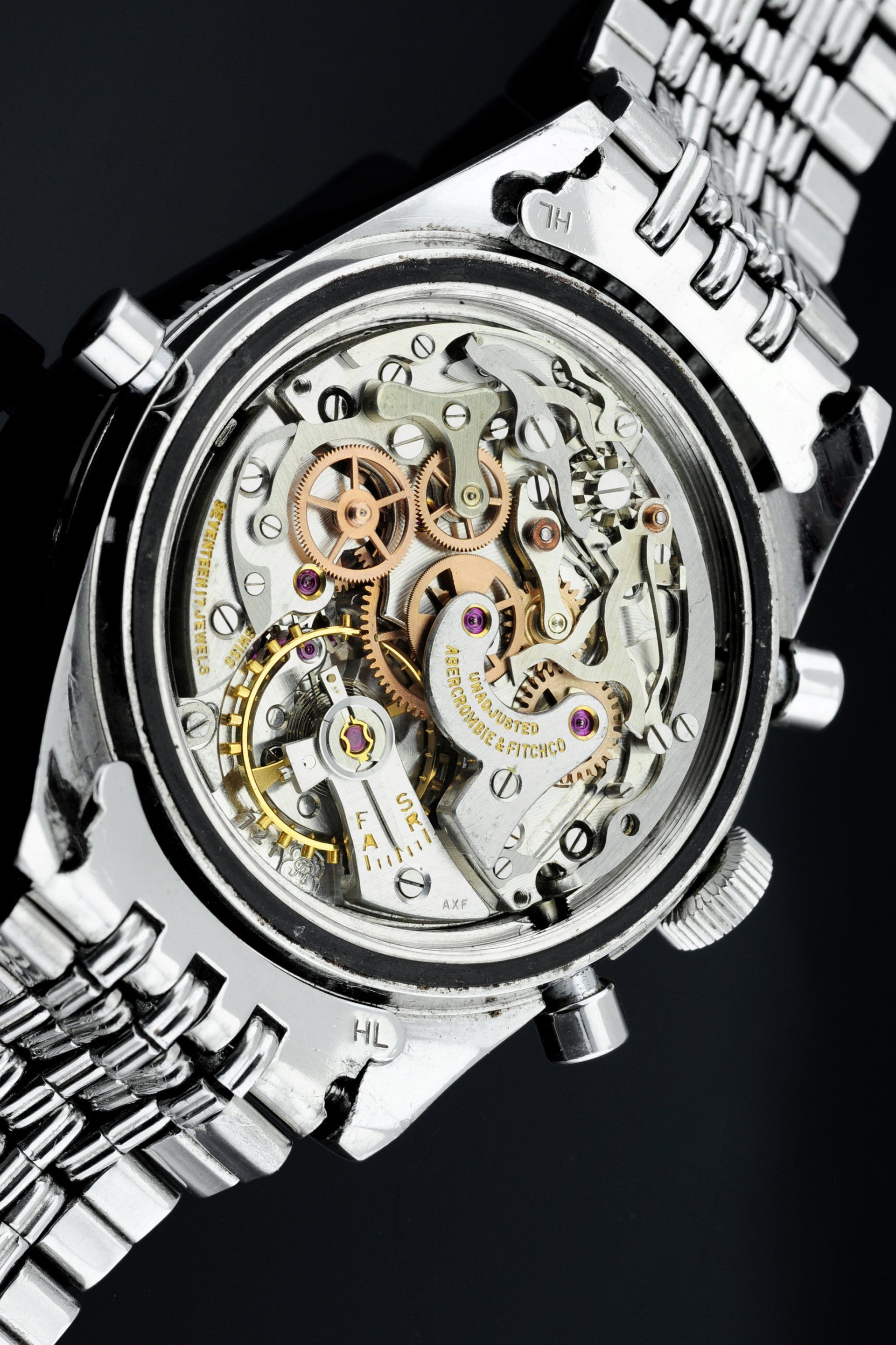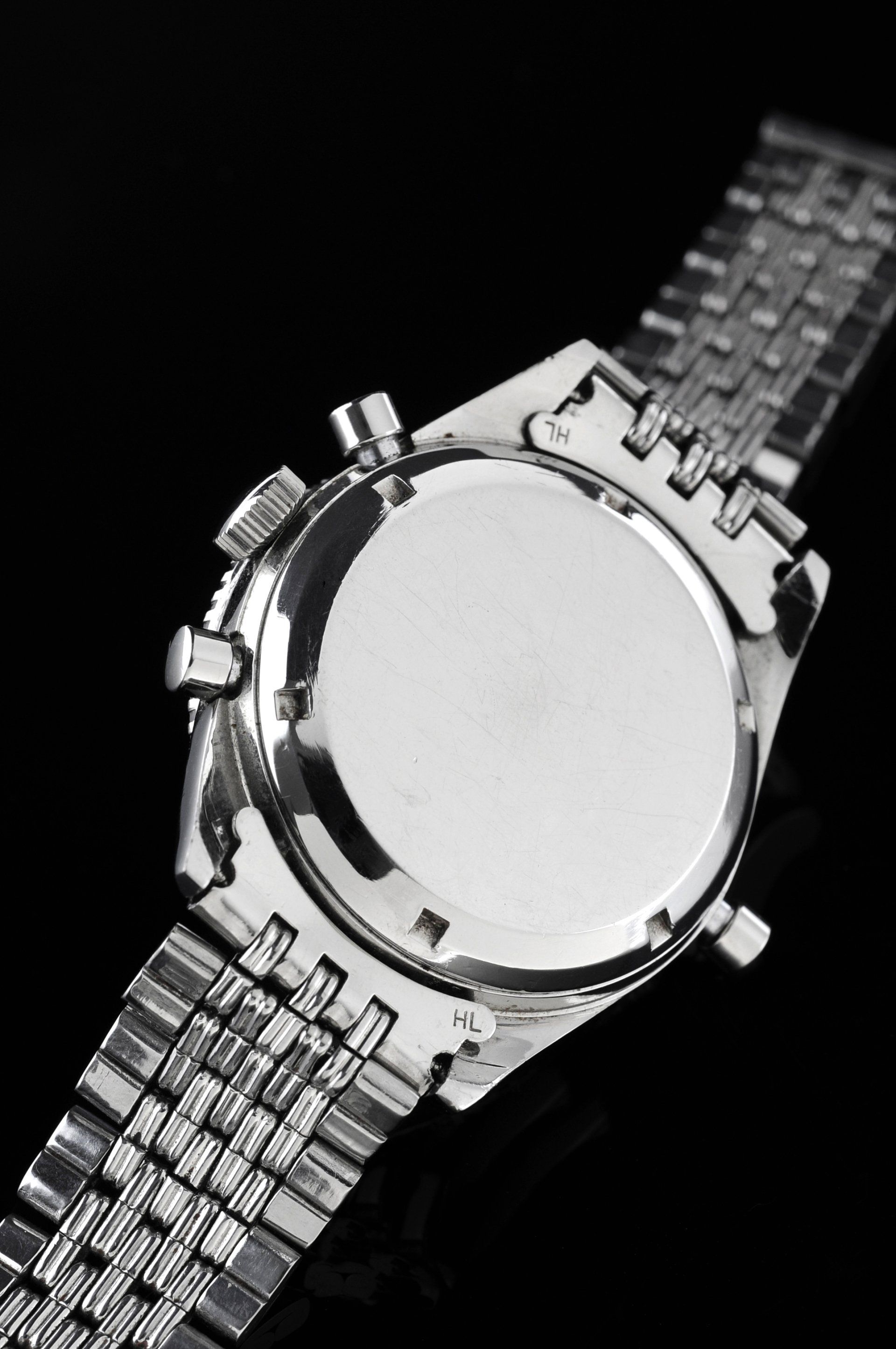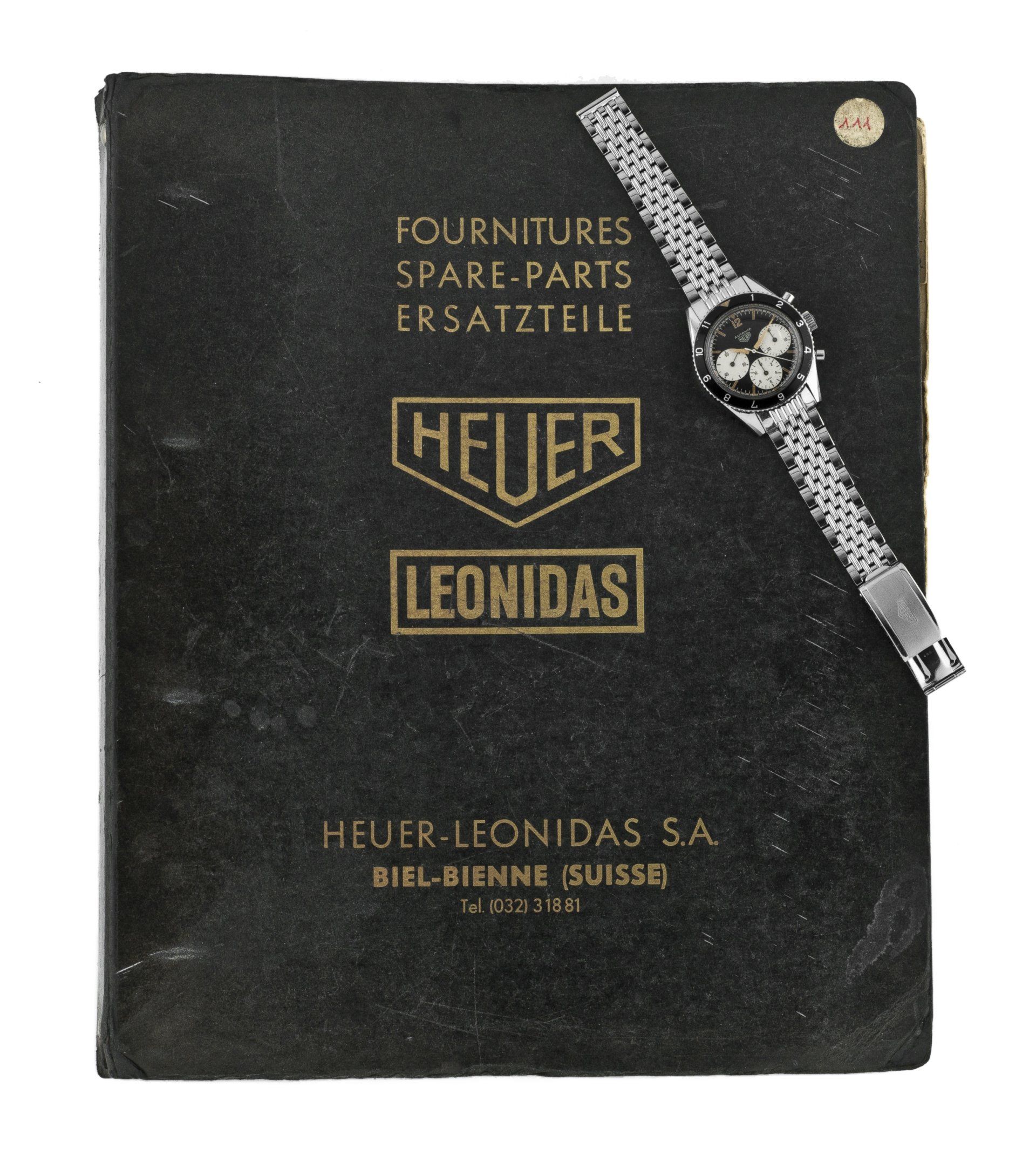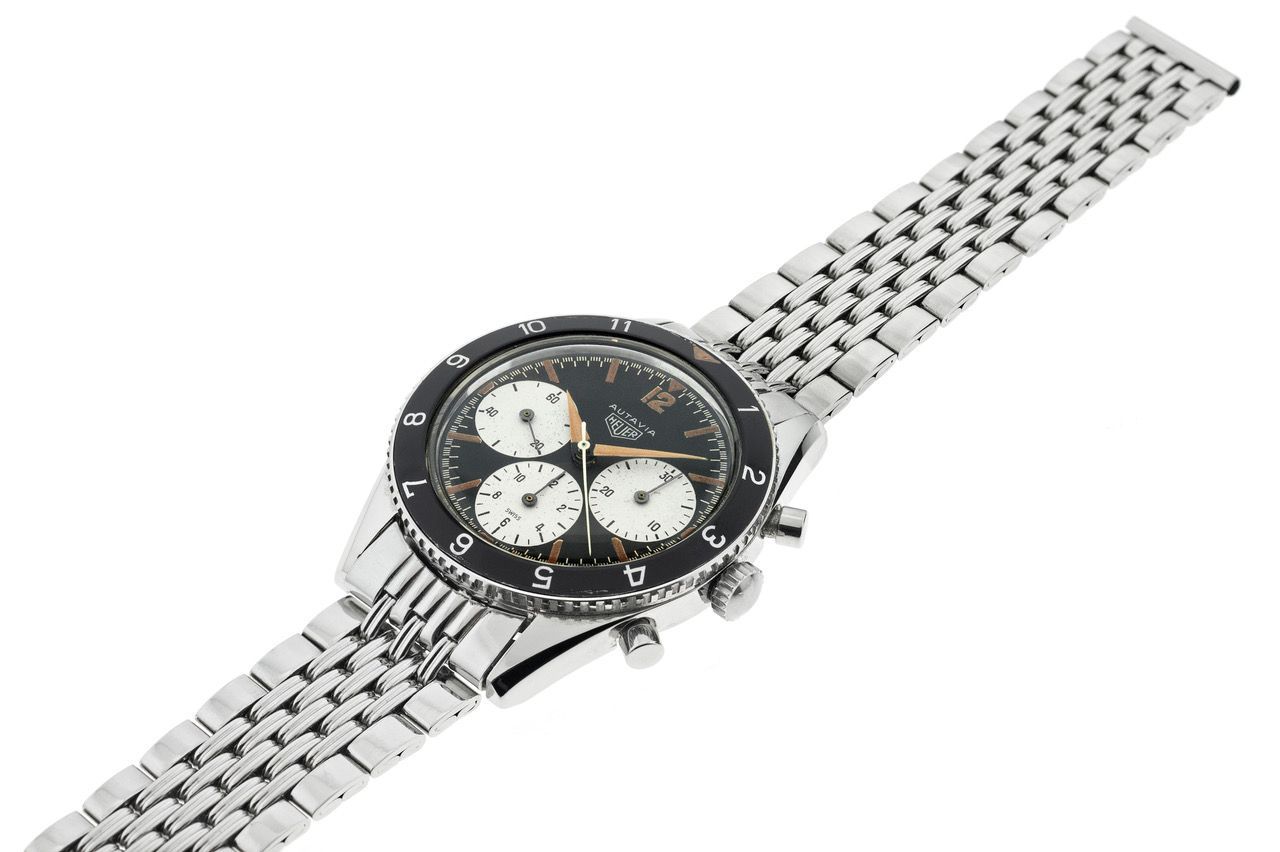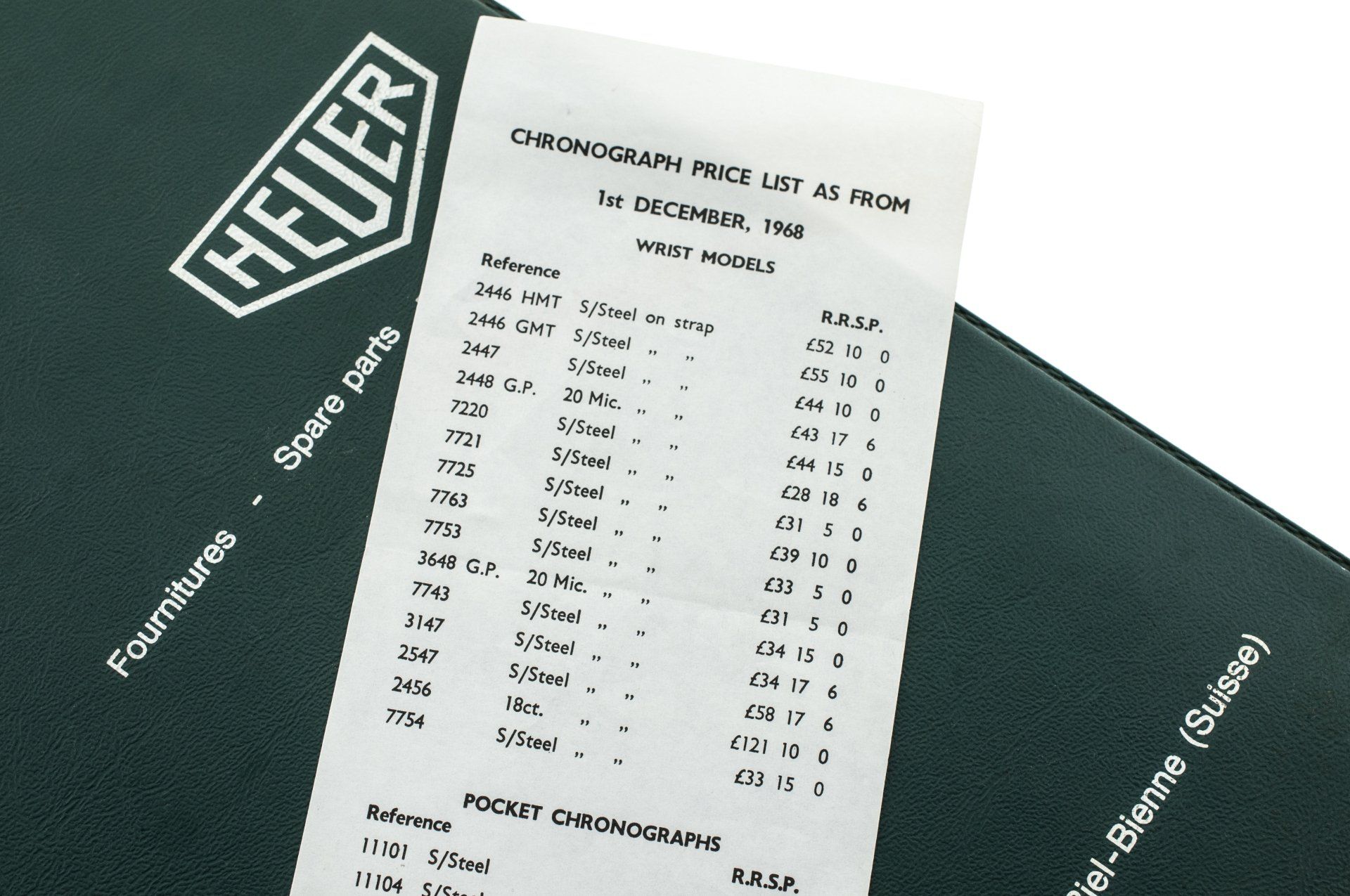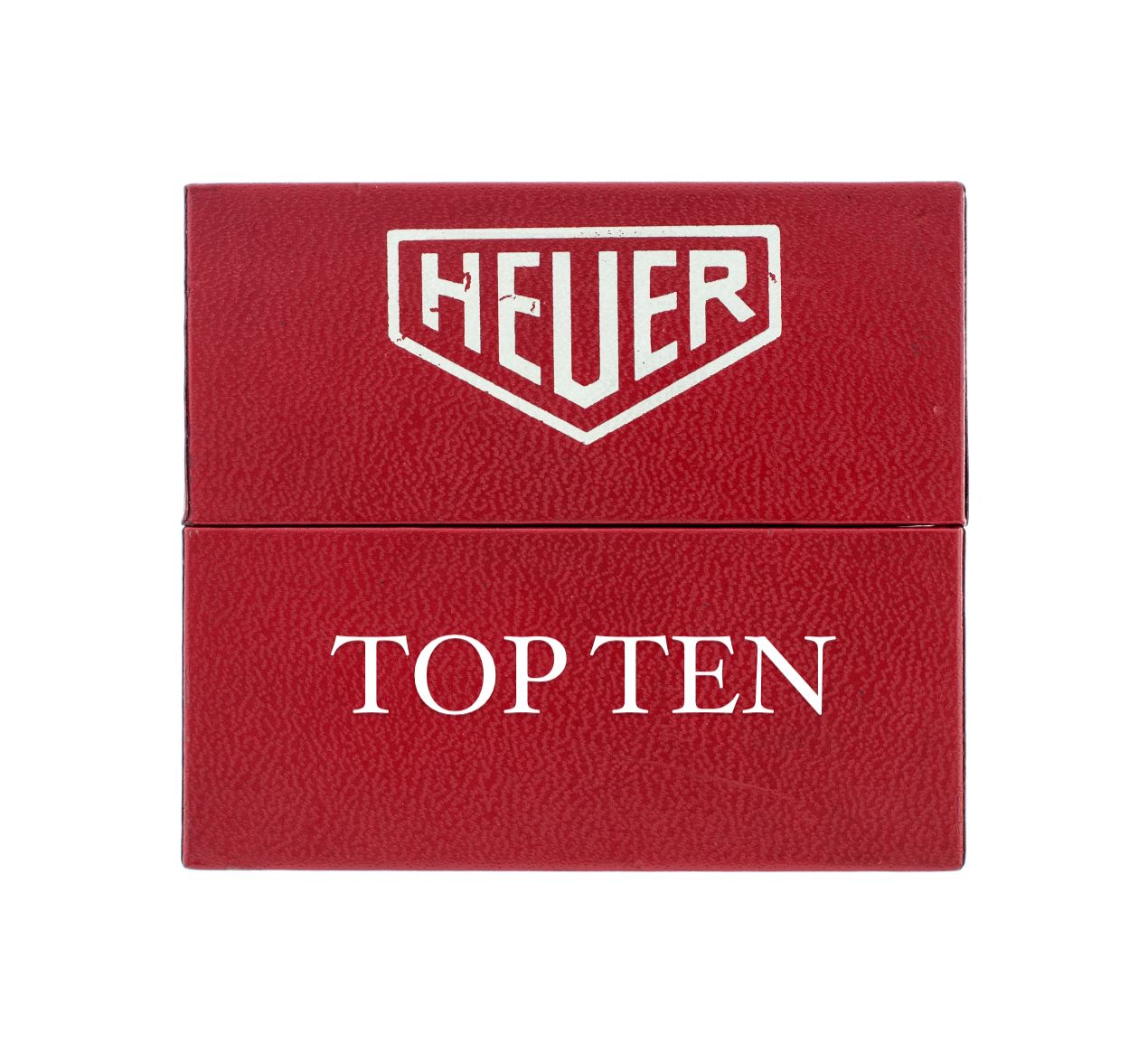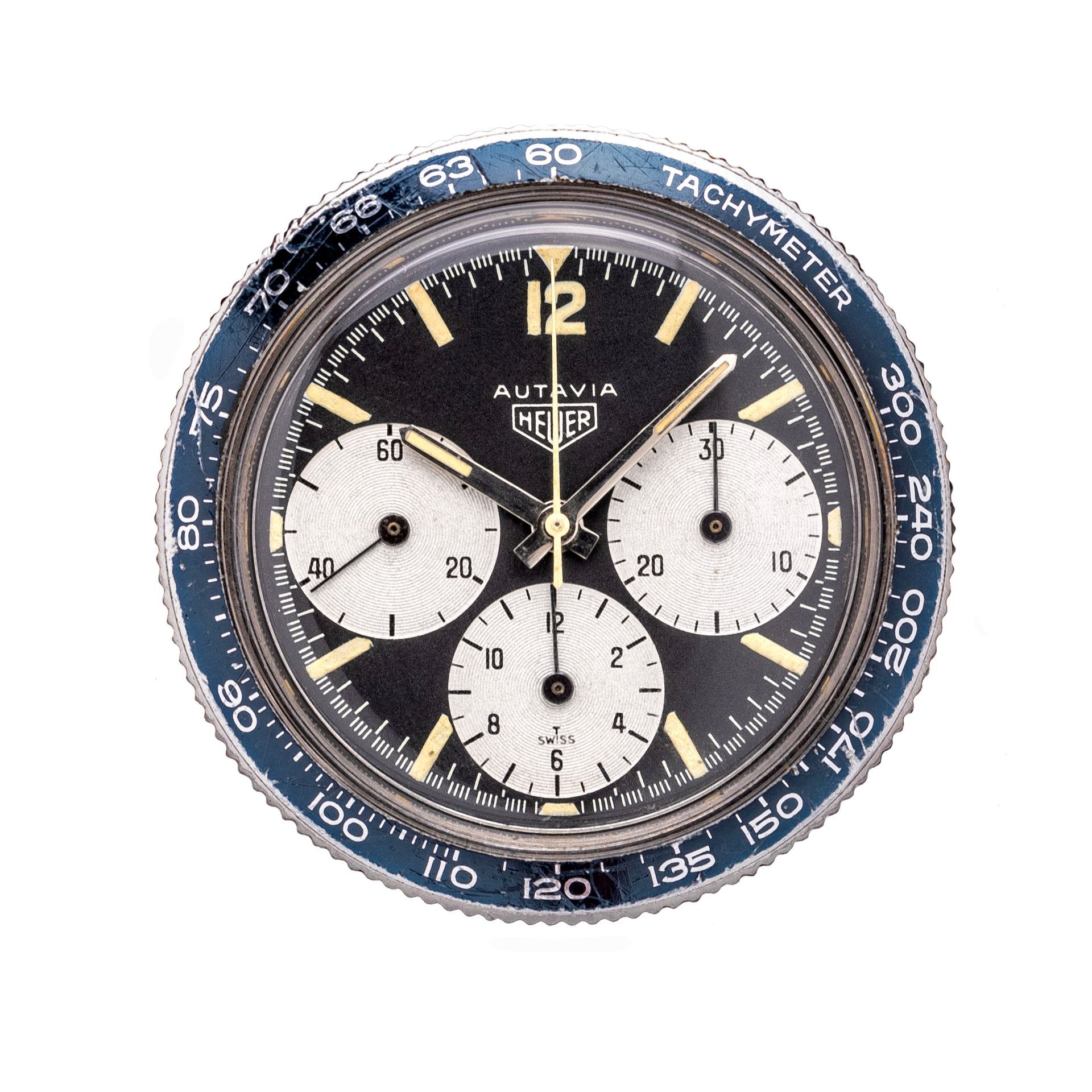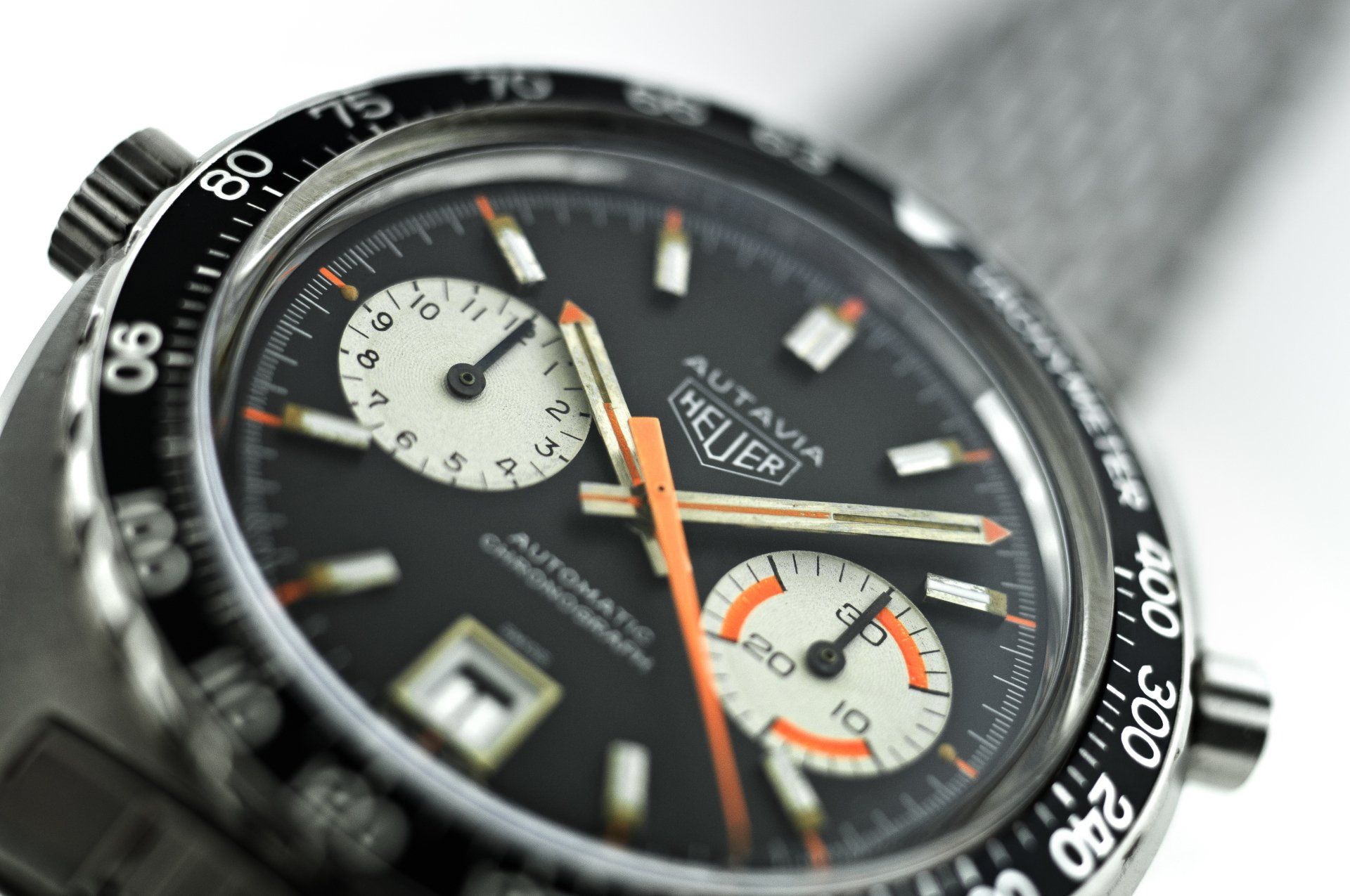Heuer 2446 A&F Seafarer
Heuer is well known for their beautiful yachting themed vintage chronographs. Here we take a look at the rarest and most desired of all of them, the 2446 Seafarer for Abercrombie & Fitch.
To a Heuer collector the Abercrombie & Fitch signed dials are in many ways our equivalent of a Rolex "Tiffany" signed dial. Abercrombie was founded in 1892 selling hunting and fishing equipment but it wasn't until the early 1900s that it became "& Fitch" after Ezra Fitch bought into the company. At various points it was proclaimed to be the greatest sporting goods shop in the world and was frequented by presidents and the glitterati of their day. President Theodore Roosevelt, John F. Kennedy, Charles Lindbergh, Amelia Earhart, and Ernest Hemmingway were all fitted out and frequented the stores, the latter was even said to have bought the gun that ended his own life from A&F. After several cycles of success, it fell upon hard times (just like the watch industry) in the 1970s and closed its doors at the end of that decade. However, the brand was resilient and it was reborn, becoming the trendy fashion retailer we know today in the 1990s. This special chronograph very much harks back to those "classier" glory days when life was simpler!
Heuer’s special relationship with Abercrombie & Fitch goes back to the 1940s the Seafarer was conceived to appeal to the man at sea, whether that be a fisherman, a yachtsman or just an all round adventurer. It allowed the owner to not just tell the time and to time things on a traditional chronograph, but it also had a regatta timer and the magical "tide disc". It was this tide disc which was the chronograph’s point of differentiation and, once set, it effectively tells you the two high and low tides for each day on an ongoing basis.
The 2446 Seafarer in the 39mm screw back case with bezel is a watch that is very seldom seen, compared to the 2446c Seafarer in the compressor case, the 2447 Seafarer in the Carrera case and the 2444 version from the 1950s it is substantially rarer. To date we have found only a handful of examples, so far all of which appear in a very small range. It's one of the few vintage watches that is almost impossible to
correctly construct from left over parts, so specific are the details, which means the "numbers known" count is unlikely to be diluted too much in the future. Essentially you had a small time window to buy one of these from new in 1963, and from only one retailer (Heuer did not retail them). Blink and you'll have missed them as they came and went and next time we see the Seafarer it was housed in the 35.5mm Carrera 2447 case (itself rare, with only around 150-200 being produced).
So what are those specific watch details? The most obvious is that the case is a Seafarer case, meaning there is an extra button on the left hand side to set the "tide" disc, so not any old Autavia case can be used. It also uses a bespoke blank case back which isn't engraved on the outside (because it's an A&F retailed watch and not a Heuer signed dial), and this case back also has a unique engraving style on the inside not seen in any other early Autavia. Lastly it uses an Abercrombie & Fitch signed bridge (with the AXF stamp on the balance) which is unique to the series. Earlier watches (2444) use a similar bridge but with movement numbers on and the later 2446c and the 2447 Seafarer revert to using a Heuer Leonidas bridge. There are some other "tells" but perhaps they are too subtle to go into here.
The Heuer Seafarers have always been sought after watches, especially so in the Autavia and Carrera cases from the 1960/70s. The combination of silver dials with the baby blue highlights adds up to a beautiful aesthetic and there is of course some romance to the idea that these "tool" watches were often put to use on the high seas by yachting enthusiasts back in the day. Today the values of such hard to find and special vintage watches are hard to predict as they seldom come up at auction. One was sold in a low key french auction in 2016 for 52000 Euro and recently a beautiful example (albeit with heavy patina on the dial) sold for $94500 by Sothebys and I would suggest that's a good barometer, with the very best being worth more in todays market. However many examples are not found in the best condition, due in part no doubt to the environment they may have been used in (damp, humid, salty not being words that are kind to watch dials!) and as condition plays such a massive part of a collectible vintage watch value, one in poor condition is worth substantially less.
To read about the 2446 Seafarer for Abercombie & Fitch and the vintage Autavia models between 1962-85 click on the link below to preview the Heuer Autavia book, which is filled with beautiful hi resolution photographs and all pertinent collector information.
Note: Please do not reproduce these images without permission.
